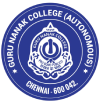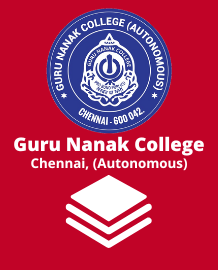Humanities - M.A. Economics
Programme Outcomes (POs)
PO 1: To understand and analyse all basic concepts in Economics
PO 2: To analyse central and state Budget to maintain maximum social welfare
PO 3: To understand the functions of international organisations such as IMF, WTO and World Bank and examine international trade policies
PO 4: To develop problem solving skills, apply statistical and mathematical tools on economic theories and find solutions for different economic problems.
PO 5: To demonstrate the importance of Gender economics to achieve inclusive growth
Programme Specific Outcomes (PSOs)
PSO 1: To prove the proficiency of the students with the ability to identify different environmental problems due to developmental activities and provide cost effective and efficient solutions./p>
PSO 2: Analyse different economic doctrines and find out the applicability of all doctrines in the modern world and provide solutions for all major economic problems such as Inflation, unemployment, poverty, inequality in income and wealth.
Programme Outcomes (POs)
PO 1: Scientific Knowledge: Acquire the knowledge of Defence and Strategic Studies to issues, challenges and national security threats faced by the country
PO 2: Problems Analysis: Identify, formulate, research literature and analyze complex problems reaching substantiated conclusions using first principles of Defence and Strategic Studies
PO 3: Design/Development of Solutions: Design solutions for complex national security problems and processes that meet the specified needs with appropriate consideration for evolving right policy choice.
PO 4: Conduct investigations of complex problems link with the society.
PO 5: Modern tool usage.
Programme Specific Outcomes (PSOs)
PSO 1: Familiarize the student to read, write and speak with confidence on different aspects affecting national security and offer solutions. Make the students socially responsible and adopt ethical standards or practice and develop the feeling of patriotism and nationalism
PSO 2: Students with a B.A degree in Defence and Strategic Studies may be employed as research assistants with scholarships, Strategic Analyst, internships, Civil Services, Armed forces, Industrial Security Officers, Defence Journalist, Print Media, primary and secondary teachers with suitable teaching qualifications.
Programme Outcomes (POs)
PO 1: To Comprehend the various forms of literature like prose, poetry, drama and fiction
PO 2: To Apprehend the different cultures and cultural sensibilities around the world
PO 3: To Develop the knowledge of grammatical system of English language.
PO 4: To know the Perspectives of literary movements that existed in different ages.
PO 5: To enrich and develop four language skills LSRW among the students
Programme Specific Outcomes (PSOs)
PSO 1: To make the students to write analytically in different formats like essays, reviews, research papers.
PSO 2: To know the Scope of employability and entrepreneurship in the field of Media and Journalism, Teaching, Public Relations, Human Resource, Civil Service, Creative Writing.
Programme Outcomes (POs)
PO 1: To analyse different economic and environmental problems and provide solutions to improve our Green Growth
PO 2: To critically analyse Keynesian and modern economic approach to solve all macroeconomic problems.
PO 3: To develop employability and research skills identify more socio-economic problems and provide solutions through several research activities
PO 4: To find out different ways by which improve the contribution of women in economic development
PO 5: To maintain stability in exchange rate, examine different international trade policies.
Programme Specific Outcomes (PSOs)
PSO 1: To evaluate macroeconomic policies including fiscal, monetary and international trade to maintain stability and analyse different environmental policies to reduce global warming, improve sustainable development and Green GDP.
PSO 2: Analyse central and state budget and plans to maintain strong and healthy fiscal federalism in India.
Programme Outcomes (POs)
At the end of the program the students will be able to:
PO 1: Scientific Knowledge: Acquire the knowledge of Defence and Strategic Studies and apply it to issues, challenges and threats to national security faced by the country.
PO 2: Problems Analysis: Identify, assess and analyze complex problems; both internal and external, and to formulate appropriate policy decisions.
PO 3: Design/Development of Solutions: Develop solutions for complex national security problems with suitable doctrinal procedures.
PO 4: Conduct survey to understand, assimilate, reflect, empathize and act on issues of critical importance faced by the country.
PO 5: Modern tool usage facilitates enhanced teaching- learning process viz.., ICT tools, LMS tools, Web designing and hosting etc.
Programme Specific Outcomes (PSOs)
On completion of M. A., Defence and Strategic Studies students the intended skills are:
PSO 1: To acquaint the students on the various aspects of national security study and enable them to understand and assess to national security features that are emerging in the international political system. The students should be able to compare and correlate the multiple aspects of national security threats and discern alternative approaches to solve them.
PSO 2: The students are adequately prepared to understand the critical functions of national security and the process of governance and policy formulations that are essential to achieve national security.
Programme Outcomes (POs)
PO 1: Provide knowledge and skills related to professional Social Work in Local, National and International level.
PO 2: Develop critical understanding of various social issues prevailing in diverse contexts.
PO 3: Equip with conceptual understanding and practical application of Social Work methods in diverse fields.
PO 4: Acquire professional knowledge and skills based on Specialization - Community Development, Medical and Psychiatric Settings and Human Resource Management.
PO 5: Apply the Social Work theories and techniques in specialized settings.
Programme Specific Outcomes (PSOs)
PSO 1: To impart knowledge, skills, attitudes and values appropriate to the practices of Social Work Profession at all levels.
PSO 2: To facilitate interdisciplinary approach for better understanding of social problems, and work for the enhancement of the people in the society.
Programme Outcomes (POs)
PO 1: To understand the fundamentals of sociology, sub-fields of Sociology and its concepts through different theories and approaches by various sociological thinkers.
PO 2: To analyze and study various social problems and to find out the solutions to resolve those problems, specifically to India.
PO 3: To critically analyze and apply different Sociological concepts on various historical events, current phenomena and individual’s life.
PO 4: To examine social changes and developments by understanding Social Movements, Legislations and International Organizations.
PO 5: To enhance communication, research and entrepreneurial skills to provide more employment opportunity in our society.
Programme Specific Outcomes (PSOs)
PSO 1: Critically analyze different social structures and various social systems
PSO 2: Through research provide solutions for different social problems

